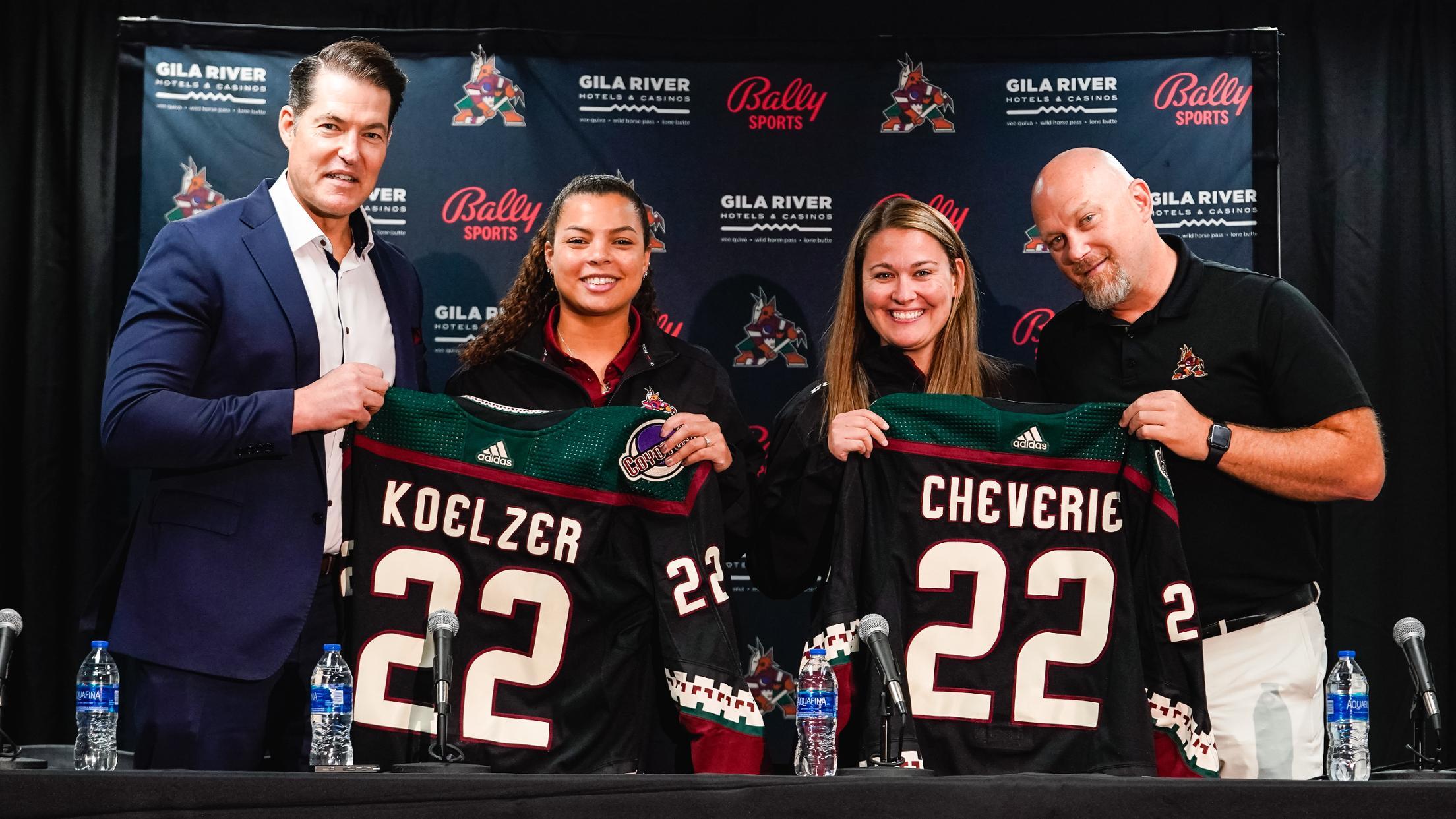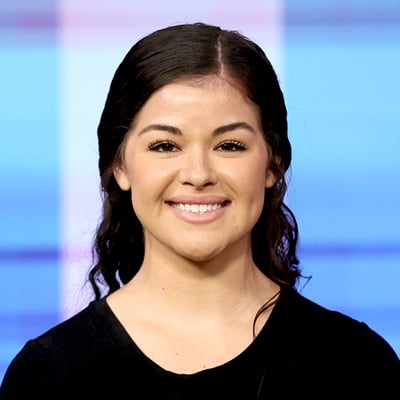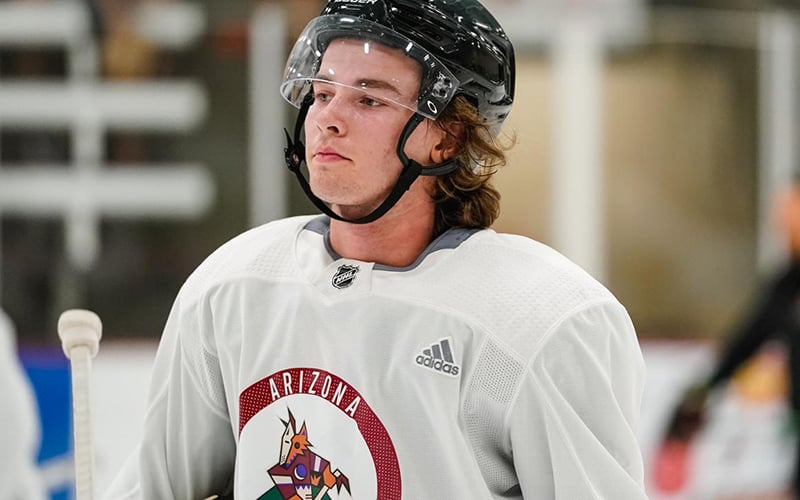
Kelsey Koelzer and Kori Cheverie worked as assistant coaches under coach André Tourigny during the team’s intrasquad scrimmage in July. (Photo courtesy of Arizona Coyotes)
SCOTTSDALE – Kelsey Koelzer and Kori Cheverie represent the future in the present moment.
That much was clear this year at Arizona Coyotes development camp, where they worked as assistant coaches under coach André Tourigny during the team’s intrasquad scrimmage in July. Koelzer and Cheverie’s participation was made possible through the Coyotes’ diverse coaching internship, which launched in September and aims to create more diversity in the coaching talent pool.
Keolzer and Cheverie took full advantage of the opportunity to show they belong, regardless of gender or race.
“We want to prove that we’re not just good female coaches, we’re just good hockey coaches,” Koelzer said. “That’s something that we each bring. Every person brings a different wealth of knowledge to the table.”
Cheverie agrees, saying, “I’ll be really excited for the day where we don’t have to have an interview about this being an amazing opportunity for a woman. It’s just an amazing opportunity as a hockey coach.”
Tourigny acknowledged the differences women face while coaching in a male-dominated league and the challenges minorities face entering a room where they are few and far between. Born in French-speaking Quebec, the Coyotes coach can relate to the desire to earn a job solely on merit.
“I’m a French guy, and the first time I coached for Team Canada, people were saying they needed a French guy on the staff,” Tourigny said. “I didn’t want to be on the staff because I was French. I wanted to be on the staff because I’m a good coach. The goal is to have the best coach period. No sex, no gender, no nothing, just good coaching.”
Koelzer became the first Black female head coach in NCAA ice hockey history in September 2019, when she took over the Arcadia University women’s ice hockey program. Her resume includes more first-time accolades as the first-ever first-team All-American of Princeton women’s hockey and the first Black player picked first overall in a professional North American hockey league draft.
Cheverie, currently an assistant coach with Hockey Canada, has history coaching men’s ice hockey teams. She became the first woman to coach a Canada’s men’s national team as an assistant coach for the Under-18 World Championship men’s team and worked as an assistant coach with the Ryerson University men’s hockey team from 2016-21.
“I think any time you can coach at the highest level, that’s where I want to be,” Cheverie said, “whether it’s on the men’s side, or the women’s side. And in the meantime, I’m just trying to gain as much knowledge and experience as I can so that if that opportunity comes knocking, I’m ready for it. That’s kind of how I approach my coaching career.”
Coyotes general manager Bill Armstrong and Tourigny hope the NHL will catch up to the NFL and the NBA when it comes to the number of professional women coaches in the sport.
The start of the 2021 NFL season featured 12 female assistant coaches, and seven women were assistant coaches in the NBA during the 2021-22 season.
Armstrong, a former coach in the AHL, was thrilled the Coyotes hosted women to learn from their coaching staff for the second straight year.
“Just to have people around you with greater knowledge to share with you … they’re going to leave camp and they’re going to be inspired with some new ideas and some new ways to present and some new thought processes about coaching,” Armstrong said. “That’s just going to make a huge impact for them as they move forward with their career.”
While a few states, including Texas and Florida, have seen a rapid increase at 71 percent in girls playing hockey in the past decade, participation remains heavily skewed. Men outnumber women 9-to-1 in participation across the country, according to a study done by Zippia. Access could be one reason for the imbalance between men and women.
“I didn’t have a girls team; it was not an option,” Koelzer said. “I had no other choice but to play with the guys if I wanted to play hockey. And that was something that I had absolutely no problem with.
“When I was growing up, I knew I would go to college, but playing college hockey was not something that I knew was in the cards for me. Once I had that knowledge, once I had that confidence to say that’s my end goal, it really helped to propel my game.”
Koelzer and Cheverie hope their success stories, groundbreaking accomplishments and efforts in creating more opportunities will help break barriers for women with goals to succeed in the male-dominated sport in the future. Still, the two women coaches, the Coyotes organization and a band of others realize there’s work to be done.
But, at least, the foundation is set for like-minded women interested in coaching professional hockey – and the future is bright.

